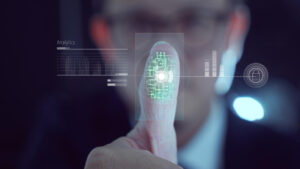Privacy advocates have long called for better policies and guidelines that protect the personal data of users. In law enforcement, we have seen many cases of wrongful use of facial data by the police.
Furthermore, these algorithms supporting facial recognition systems need to be transparent and be under close observation. The good news is, in a pilot project involving six law enforcement units – we have an agreement regarding the safe and effective deployment of facial recognition systems.
A Step in the Right Direction?
Last year the World Economic Forum, the Interpol, and the UNICJ Research Institute released a rough draft of the structure for the ethical use of facial data in the previous year. Then several hired agencies followed this structure to see if the process is ready for real-world use.
Finally, we got an update this month regarding this study. Out of the six law enforcement units – two are in France and the remaining four have origins in Brazil, the Netherlands, New Zealand, and Sweden.
The agency felt that understanding the software facilitating facial data recognition, is vital for both policymakers and law enforcement officials. They also recommended that all facial data metrics should be handled by a trained specialist.
Irrespective of such as review, officials should not jump to conclusions and should consider such data as leads. Facial data should not be used to arrest someone, without additional evidence.
Key Takeaway from the Report
Facial recognition systems will find use in police departments nonetheless. The report also says that perpetrators quickly change their strategy when facial recognition is in the equation.
For this reason, crime-fighting can become more expensive, and getting funds may become more challenging. Several police communities feel that facial recognition is the need of the hour.
As a point of caution, the report also suggests that making the system more open and transparent should be the top priority. Also communicating changes or updates to the framework to communities is essential.
When it comes to the fundamental issue of real-time facial recognition, the report says that it throws up special challenges and more understanding is needed on how it gets used.
Conclusion
Soon, we will use facial recognition in policing on a much larger scale. However, the primary disadvantages such as – privacy loss, limited personal freedom, violation of rights, data misuse, technical challenges, etc. are still prevalent.
We need to research in the fields of AI, ethics, sociology, and psychology to make the framework more refined. Technologies like blockchain (distributed ledgers) can also aid in the same.
The article has been published by the editorial board of the Identity Herald. For more
information please visit www.identityherald.com




